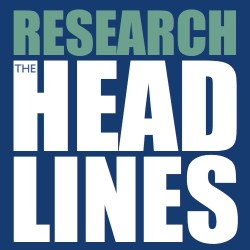Brain blog showcase 2019: Alcohol: A Leading Health Risk or Protective Factor against Dementia?

All this week we’ve been showcasing the work of students who have been “researching the headlines” as part of their undergraduate studies. Their task was to describe an original research report exploring how lifestyle affects brain health in a manner accessible to non-experts, as well as evaluating the media coverage of the research. If you’re interested in using this approach in your own teaching, you can contact Alan Gow for more information and materials.
For our final “brain blog”, we have…
Alcohol: A Leading Health Risk or Protective Factor against Dementia?
by Jennifer Stephen
Alcohol seems to be forever in the news. The main spotlight is often on the negative impact of alcohol and excessive drinking is seen as a leading risk factor for several chronic illnesses and mortality. The Independent capitalised on a finding from a recent study conducted by teams from the University College London and French institute for health, Inserm, highlighting the potential positive effects of drinking alcohol. Titling their news article ‘People who don’t drink any alcohol are more likely to develop dementia, suggest study’. The study reported that abstaining from alcohol was associated with an increased risk compared to those who drank within the recommended UK limits. We will evaluate this claim by looking at the study and how it was reported by the Independent.
What did the researchers find?
The study cited in the Independent, used 9087 participants who were already in an ongoing study (Whitehall II). Recruited between 1985-88, the participants were between 35 and 55 at the beginning of the study and were followed for around 23 years. Every four to five years, participants were asked about their alcohol consumption, alcohol dependence, and hospital admissions for alcohol related chronic disease. The researchers tracked health records and administrative data for dementia diagnosis. Three key findings were found within the research: first, a link between abstaining from alcohol in midlife with a higher risk of developing dementia; second, evidence suggesting that those who consume an excess amount of alcohol (>14 units per week) had a four times higher risk of dementia; and third, that excessive risk of developing dementia in abstainers is attributable to their greater risk of developing a cardiometabolic disease (e.g. diabetes, heart attack, stroke).
Existing studies of alcohol consumption and the risk of dementia typically assess alcohol consumption in later life and dismiss the risk of drinking or over drinking in earlier life. This means the results may not reflect lifetime consumption which may be critical in understanding the effects that alcohol has on the development of dementia. This study addresses this well as it spans nearly three decades, allowing for a comprehensive assessment of the associations of alcohol consumption and dementia. As the study begins in midlife it also provides a more in-depth analysis of the effects of alcohol over a prolonged period; studies that just focus on older age may not account for change in alcohol consumption.
However, the research does acknowledge the limitations of using self-reports in measuring alcohol consumption as this can lead to some bias in the findings. Another issue with this study, was that it did not fully consider the reasons behind people abstaining from alcohol. The abstainers may have been precious heavy drinkers or have current or previous health issues which may be the reason behind them not drinking or choosing not to drink (e.g. medication). Also, it is important to not that those classified as abstainers, were a mixed group, comprising of those who had never drank alcohol in 10 years to those who reported drinking at all 3 waves but not in the week before participating. In addition, as all participants were part of the UK civil service, it is not clear the extent to which we can generalise these findings.
What did the Independent report?
Although, the Independent title is accurate and modest, it does only emphasise one aspect of the study; the positive effects of alcohol. Whilst mentioning that the study also found that excessive drinking was associated with an increased risk, this is not what the focus of the article is on. The article inaccurately notes that drinking wine was associated with a lower risk of dementia, the study did not actually find this. Instead, the researchers reported that those categorised as moderate drinkers (between 1-14 units per week) were more likely to drink wine. It was also worth noting that most of the quotes in that were included in the article were from researchers who were not actually involved in the study. This can lead to confusion amongst readers and misinform them on the actual findings.
The media report appears to follow the results found in the study fairly-well. They run through the main findings reported and appear to support interpreting these results with caution. By mentioning words such as ‘suggests’ and ‘require caution’, the reporter informs the reader not to jump to possibly dangerous conclusions.
A final word:
Given the number of people being diagnosed and living with dementia, and that figure only set to increase over the coming year, working out the protective and risk factors is becoming more paramount. This research may allude to the positive effects of alcohol however, future research is of course needed. This one research study should be read with caution, and within the context of other research on the health effects of drinking alcohol.
References:
King, A. M. (2018, August 1). People who don’t drink any alcohol are more likely to develop dementia, suggests study. Independent. Retrieved from https://www.independent.co.uk/news/health/wine-alcohol-dementia-middle-age-teetotal-abstinence-a8473351.html
Sabia, S., Fayosse, A., Dumurgier, J., Dugravot, A., Akbaraly, T., Britton, A., . . . Singh-Manoux, A. (2018). Alcohol consumption and risk of dementia: 23 year follow-up of Whitehall II cohort study. Bmj. doi:10.1136/bmj.k2927


Nicee blog thanks for posting